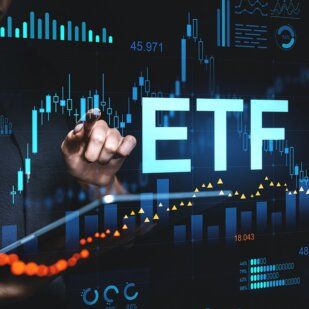
Can the U.S. avert a recession by early 2024, considering a strong labor market versus rising delinquencies and inflation?
The question of whether the U.S. can continue to dodge a recession has been on the minds of economists, investors, and consumers alike. Historically, certain economic indicators have been reliable predictors of a recession, and many of these signals are currently flashing red. Yet, despite the alarm bells, the U.S. economy has managed to avoid a downturn thus far. This leads to the pressing question: how much longer can this last?
Classic Recession Signals
Over the past year, we’ve witnessed several classic indicators of an impending recession. These include the inverted yield curve, where long-term interest rates fall below short-term ones, and a sharp drop in the index of leading economic indicators. Both of these have traditionally been harbingers of a recession. Typically, when these signals appear, a downturn is expected to follow. However, the current economic environment is proving to be an anomaly.
Despite these worrying signs, recent improvements in some economic indicators have provided a glimmer of hope. However, it’s worth noting that if the U.S. does manage to avoid a recession, it would be unprecedented in economic history. Never before have these indicators been so negative without a recession eventually occurring.
The Labor Market’s Role
The primary factor keeping the U.S. economy afloat is the remarkable strength of the labor market. Unemployment remains low, and job creation continues at a steady pace. This robust labor market has been a significant factor in supporting consumer spending, even as inflation has eroded purchasing power. Consumers, bolstered by the savings accumulated during the COVID-19 pandemic, have continued to spend, driving demand and keeping the economy buoyant.
However, this strength in the labor market has also been a double-edged sword for the Federal Reserve. As wages have risen, so too have company revenues, outpacing the increasing cost of labor. This dynamic has allowed businesses to continue hiring and retaining workers, even as the Fed has raised interest rates to combat inflation. The higher rates have not yet had the desired effect of cooling demand and bringing down prices.
Consumers, despite drawing down their savings, have continued to spend, undeterred by higher prices. This resilience in spending behavior is partly due to the belief that the strong labor market will persist, allowing workers to maintain their income levels. However, this situation has led to what can be described as one of the greatest social experiments in modern history.
The experiment involves a widespread belief that the current economic conditions—marked by cheap and easy borrowing and high wages—will continue indefinitely. This belief has led to behaviors that are unsustainable in the long term. Companies have taken on significant debt at historically low interest rates, governments have run large deficits, and consumers have lived beyond their means. The result has been a distortion in the labor market, with wages rising dramatically, even in traditionally low-paying jobs.
The Recession Looms
Despite the current strength of the labor market, it is unlikely to hold up indefinitely. The cracks are beginning to show, with rising delinquency rates on credit cards, auto loans, and mortgages. Low-income consumers, in particular, are feeling the squeeze as real wages fail to keep pace with inflation and COVID-19 savings dwindle. As the labor market starts to soften, the stresses on consumers and businesses will increase, pushing the economy towards a recession.
We continue to believe that a recession is likely to occur either in late 2023 or early 2024. The market, however, does not seem to be pricing in this risk adequately. This disconnect between market expectations and economic reality could lead to market dislocations, creating both challenges and opportunities for investors.
The coming months will be critical in determining whether the U.S. can continue to avoid a recession or whether the economy will finally succumb to the pressures building beneath the surface. As these dynamics unfold, the timing and nature of the Federal Reserve’s response will be key factors to watch.
Discover more about:
More Insights

Real Estate Market Recap: Trends, Challenges, and What Comes Next

Beyond the Hype—Building Smarter Private Credit Portfolios

Structural Forces Are Driving the Current Investment Environment

Key Principles of the ETF Execution Protocol

Finding Opportunity Amid Imbalance: 2026 Market Outlook

